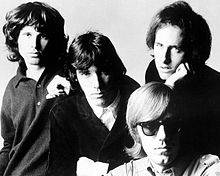i.e. is the first release by Juliet Greene.
Songs include…
A Touch to Tell
Brown-Eyed Spectre
Can’t Seem to Breathe
You Were to Me
To learn more about Juliet and her EP, visit bandcamp.com and search Juliet Greene, or click here.
i.e. is the first release by Juliet Greene.
Songs include…
A Touch to Tell
Brown-Eyed Spectre
Can’t Seem to Breathe
You Were to Me
To learn more about Juliet and her EP, visit bandcamp.com and search Juliet Greene, or click here.
 Rising from the cooling embers of the extraordinary band, Iona, is Celestial Fire. They are a progressive rock band, and they just released a dvd/2cd set called, “Live in the UK.”
Rising from the cooling embers of the extraordinary band, Iona, is Celestial Fire. They are a progressive rock band, and they just released a dvd/2cd set called, “Live in the UK.”
In studio or live, Celestial Fire exhibits high-level musicianship and intricate songwriting.
Celestial Fire is…
Dave Bainbridge (guitars, keyboards, bouzouki, percussion, vocal) Dave was one of the driving creative forces behind Iona. He’s brought his heart and soul to this project.
Sally Minnear (lead vocals, vocal looping, acoustic guitar, percussion) Daughter of multi-instrumentalist Kerry Minnear of Gentle Giant. Sally toured as the featured vocalist in Michael Flatleyʼs “Lord of the Dance.”
Frank Van Essen (drums, percussion, violin, vocals) Just about the time you realize this a really good drummer, Frank has grabbed a violin and plays it like it’s his primary instrument.
Simon Fitzpatrick (basses, Chapman Stick, Moog bass) Type in this guy’s name at YouTube. He single-handedly covers Roundabout by Yes, Bohemian Rhapsody by Queen, and Stairway to Heaven by Led Zeppelin. As a bass player, Fitzpatrick sets the pocket when needed, and colors the lines when appropriate.
Dave Brons (guitars, mandolin, vocals) A gifted musician tuned to the mood of this band.
The dvd/2cd set features a lot of new material, some Iona material (including “Today”), and even a cover or two. My only wish is that they would have performed live (for the dvd) their composition “For Such a Time as This.” Fortunately, the studio version is included.
Check out their website to learn more or to get their music.
 How many things are better by committee? Some, perhaps.
How many things are better by committee? Some, perhaps.
In music, having a key instrument covered by committee would seem a recipe for disaster.
On 8 different albums between 1967 and 1971, The Doors used 11 different bass players, some albums featuring more than one. The Doors did not have a bass player on stage when they played live. Their keyboard player, Ray Manzarek, took care of that. In the studio, Manzarek was concerned that his keyboard bass did not have the “articulation” needed, meaning that keyboard bass doesn’t cleanly break on through the mix.
So, how did The Doors make it work? They chose some of the best studio musicians available.
Harvey Brooks is credited as the bass player on Touch Me. After establishing moderate tension with drummer John Densmore, Brooks lifts the spirit of the song with ascending, chromatic notes while vocalist Jim Morrison asks/pleads, “Can’t you see that I am not afraid?” From there, Brooks and Densmore modify their pattern to 1/2 time, meaning that the tension is softened and plenty of sonic space is left for Morrison to ensure that, “I’m gonna love you, till the heavens stop the rain.” After dipping into some melodic stretches over harpsichord during the song’s quietest moment, Brooks roars back during the saxophone solo, alternating his note selection at the end by jumping up a half tone, then dropping down a half tone. The slight change is extremely effective, and reflects what Brooks brings to the song – exquisite note selection that never takes over.
Sitting in on a session at the last minute, Lonnie Mack locked down the blues vibe of Roadhouse Blues. Deceptively simple (isn’t all good art?), Mack doubles the guitar line (mirrors it) and sinks his teeth in, pit bull style, to the last note. Along the way, Mack drops in flourishes that show fluid fingers and imagination. As the guitar solo takes off at 1:43 into the song, Mack brings the first of his flourishes, reaching up to the bass’ higher notes to announce a modified pattern going forward.
Combining rhythm and melody makes bass indispensable to rock music. Tracking with Manzarek’s left hand on Riders on the Storm, bassist Jerry Scheff combined undeniable talent with remarkable restraint. The result is a hypnotic trance that complements Morrison’s vocal and background whisper which is layered underneath the vocal. By tapping into Manzarek’s preference, Scheff melded the bass to the Manzarek’s solo journey. Rain, thunder, and Morrison whisper this Doors’ last recording into eternity.
